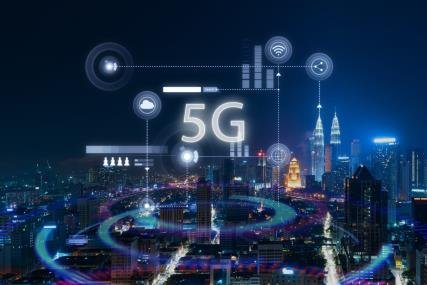The 5G revolution is reshaping the technological landscape, promising faster speeds, lower latency, and greater connectivity. As we delve deeper into this new era, it’s crucial to identify the key players driving this transformative technology. In this blog post, we’ll explore the leading companies and organizations spearheading the development and implementation of 5G.
Qualcomm: The Chipset Master
Qualcomm, a renowned name in the semiconductor industry, has been a pivotal force in the 5G landscape. Their cutting-edge chipsets power a wide range of 5G devices, from smartphones to IoT gadgets. By continuously pushing the boundaries of 5G technology, Qualcomm is enabling faster data speeds, improved network capacity, and lower latency who is leading 5g technology.
Huawei: A Global Tech Titan
Huawei, a Chinese multinational technology company, has made significant strides in 5G infrastructure and network solutions. Their innovative approach to 5G technology has positioned them as a major player in the global telecom market. Huawei’s commitment to research and development has led to groundbreaking advancements in 5G, particularly in areas like network slicing and edge computing.
Ericsson: A Pioneer in Network Infrastructure
Ericsson, a Swedish multinational networking and telecommunications company, has a long history of innovation in the telecommunications industry. Their 5G solutions are powering networks worldwide, enabling faster data speeds, lower latency, and enhanced network capacity. Ericsson’s focus on sustainability and energy efficiency has also made them a leader in green 5G technologies.
Nokia: A Strong Contender in the 5G Race
Nokia, a Finnish multinational telecommunications, information technology, and consumer electronics company, is another key player in the 5G ecosystem. Their 5G solutions are designed to meet the diverse needs of different industries, including telecommunications, enterprise, and public safety. Nokia’s commitment to open innovation and collaboration has helped them drive the development of 5G standards and technologies.
Samsung: A Versatile Player in the 5G Arena
Samsung, a South Korean multinational conglomerate, is a major player in the 5G technology landscape. Their 5G solutions cover a wide range of areas, from network infrastructure to consumer devices. Samsung’s focus on innovation and cutting-edge technology has enabled them to deliver high-performance 5G products and services.
Telco Giants: Driving 5G Deployment
Major telecoms companies worldwide are actively investing in 5G infrastructure and services. Companies like Verizon, AT&T, T-Mobile, Vodafone, and China Mobile are deploying 5G networks across their respective regions, bringing the benefits of 5G to millions of users.
Government Initiatives: Fostering 5G Growth
Governments around the world recognize the transformative potential of 5G technology and are implementing policies to accelerate its deployment. Countries like the United States, China, South Korea, and the United Kingdom have launched initiatives to invest in 5G research, spectrum allocation, and infrastructure development.
The Role of Standards Organizations
Standards organizations like the 3rd Generation Partnership Project (3GPP) play a crucial role in defining the technical specifications for 5G. By collaborating with industry experts and stakeholders, these organizations ensure interoperability and global adoption of 5G technologies.
The Future of 5G: Beyond Mobile Connectivity
The future of 5G extends beyond mobile connectivity. It has the potential to revolutionize industries like healthcare, transportation, manufacturing, and agriculture. 5G-enabled technologies like IoT, AI, and AR/VR will unlock new possibilities and drive economic growth.
Conclusion
The 5G revolution is still in its early stages, but the impact of this transformative technology is already being felt. By understanding the key players driving 5G innovation and deployment, we can better appreciate the potential of this technology to shape our future. As we continue to explore the possibilities of 5G, it’s clear that collaboration, innovation, and global cooperation will be essential to realizing the full potential of this exciting new era who is leading 5g technology.
FAQs
- What is 5G technology? 5G, or fifth-generation wireless technology, is the latest generation of cellular mobile communications standards. It offers significantly faster speeds, lower latency, and greater capacity compared to previous generations.
- How is 5G different from 4G? 5G offers several advantages over 4G, including higher data rates, lower latency, and the ability to connect more devices simultaneously. 5G also enables new applications like autonomous vehicles, remote surgery, and advanced IoT devices.
- Who are the major players in the 5G industry? Major players in the 5G industry include technology companies like Qualcomm, Huawei, Ericsson, Nokia, and Samsung, as well as telecommunications companies like Verizon, AT&T, T-Mobile, Vodafone, and China Mobile.
- What are the potential benefits of 5G technology? 5G technology has the potential to revolutionize various industries, including healthcare, transportation, manufacturing, and entertainment. It can enable faster data speeds, lower latency, and more reliable connectivity, leading to new innovations and improved quality of life.
What are the challenges in deploying 5G technology? The deployment of 5G technology faces several challenges, including spectrum allocation, infrastructure costs, and regulatory hurdles. Additionally, security concerns and the need for skilled workers are also significant challenges who is leading 5g technology.







